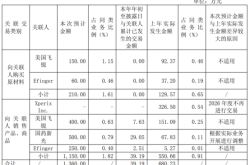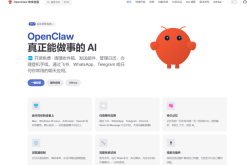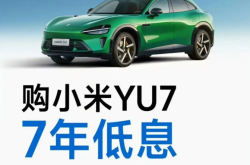Lei Jun Navigates Through 2024: "King of Traffic" Faces Troubles Too
![]() 11/04 2024
11/04 2024
![]() 513
513
Lei Jun's career sails smoothly, so does Lu Weibing's.
Written by|Lan Dong Business Zhao Weiwei
1
Let's start with a so-called business war story.
Lu Wei's company was in debt of 100 million yuan and closed down in 2019. Surprisingly, Yu Jun acquired Lu Wei's company, helped him pay off the debt, and Lu Wei joined Yu Jun's company Xiaodou as its vice president.
Xiaodou is a mobile phone company that once offended a Korean semiconductor manufacturer. As an upstream supplier, this Korean manufacturer imposed an embargo on Xiaodou, causing great difficulties in Xiaodou's supply chain. Even Yu Jun's personal visit to Korea didn't resolve the issue. Ultimately, it was Lu Wei's mediation that led to the Korean manufacturer lifting the embargo on Xiaodou.
"The truth is not like that," described the author of the story. "Xiaodou's crisis occurred in 2016 and was resolved with Ding Dugao's help. Lu Wei only arranged a meal between Yu Jun and the Korean manufacturer under Ding Dugao's instructions. The Korean manufacturer's executives had a good relationship with Ding Dugao, and their CEO's daughter interned in my department for more than half a year. However, it's hard for outsiders to know how Lu Wei took credit for this to Yu Jun during the mediation."
The author of this detailed story is Yu Lei, the former vice president of Gionee Group. This excerpt is from his book "Mobile Phone's Life and Death" published this summer, which claims to be a recreation of a mobile phone brand's journey, but the obvious intention of this excerpt is to belittle Lu Wei and elevate Ding Dugao.
Whether "Mobile Phone's Life and Death" is a novel or a true story, those who have a basic understanding of the mobile phone industry can easily match the pseudonymous characters and past events in Yu Lei's book with reality. The Korean manufacturer is Samsung, and Xiaodou, Ding Dugao, Lu Wei, and Yu Jun likely refer to Xiaomi, Liu Lirong, Lu Weibing, and Lei Jun, respectively.
As everyone knows, Gionee, which once flourished, went bankrupt in 2018.
One of the main reasons was that the founder Liu Lirong gambled in Saipan and embezzled a huge amount of company funds, ultimately leading to a broken capital chain and 17 billion yuan in debt for Gionee. A year earlier, Lu Weibing, the former president of Gionee, ventured into entrepreneurship, founding Chengyi Technology, a hardware company focused on the overseas market. However, its development was not smooth, and it was later acquired by Xiaomi.
However, many people do not know how insiders reconstruct and attribute Gionee's massive failure.
Yu Lei retold many internal news in his book. For example, the lens supplier "Micron Technology" was the first to trigger Gionee's bankruptcy and debt crisis. "Introducing Micron Technology was the last important thing Lu Wei did at Yuli. At that time, Ding Dugao didn't agree because Micron Technology had once caused trouble for Yuli. However, with Lu Wei's repeated persuasion and Old Cai's repeated assurances, Ding Dugao softened. They ultimately caused great trouble."
It's hard to convince people to blame Lu Wei for the problem, considering they were once colleagues, and this is seen as "Lu Wei helping Yu Jun."
Years later, when Lu Weibing was developing the Redmi Note 8 Pro for Xiaomi, he also introduced the new MTK G90T chip from MediaTek against the odds. The goal was to balance suppliers, align with cost advantages, and ensure strategic security in the macro environment. Ultimately, this internally controversial product was a success.
What is honey to you is poison to others. Different companies choose the same means, but the results are not the same.
Regarding his former company Gionee, Lu Weibing later didn't reveal or analyze much. In Xiaomi's official biography "Boldly Going Forward," one of the few descriptions is: Xiaomi is a simple company, and I like this simplicity. The previous company was too complicated, so complicated that as the second largest shareholder, there were many things I couldn't solve.
In fact, after Gionee's bankruptcy, its founder Liu Lirong fled overseas. The second largest shareholder Lu Guanghui briefly revived the Gionee brand in 2019, attempting to launch two new phones, but there has been no further news since then.
2
Today, Lu Weibing has become Xiaomi's solid number two figure.
At the Xiaomi 15 series and Xiaomi Pengpai OS 2 new product launch event, 16 products across the "human-vehicle-home ecosystem" were unveiled at once. The one Lei Jun values and recommends the most is the Xiaomi 15 phone, which makes him proud. This is undoubtedly an affirmation of Lu Weibing's team's capabilities.
After Xiaomi began manufacturing cars, Lei Jun's business focus shifted to Xiaomi Su7, while Lu Weibing took on the responsibility of managing the smartphone business. Within Xiaomi, Lu Weibing, a latecomer, surpassed many long-serving employees to become Lei Jun's top choice for this crucial role.
In the smartphone business, Lu Weibing has never disappointed Lei Jun. With a solid and secure smartphone business in the rear, the automotive business can charge ahead on the front.
After joining Xiaomi in 2019, Lu Weibing took charge of Redmi, which is considered the first time in Xiaomi's history that brand decision-making power was given to one person—Lei Jun entrusted this power to Lu Weibing.
The following year, Lu Weibing became a partner of Xiaomi Group along with Wang Xiang and Zhou Shouzi. In the third year, he replaced Zhou Shouzi as president of Xiaomi's International Department. In the fourth year, Lu Weibing became president of Xiaomi Group.
More importantly, Lu Weibing considers himself someone who has personally rolled up his sleeves in technology, products, supply chain, sales, and marketing, and has fallen many times.
In Xiaomi's official biography, he believes that if a brand manager hasn't gone through such trials and tribulations and paid a tuition fee of over 1 billion yuan, they can't truly understand the complexity of the market. He is that manager who has been fed by experience and lessons.
It's not hard to conclude that the failed Gionee paid its tuition, which just happened to pave the way for today's unstoppable Xiaomi.
At the same time, this also shows Lei Jun's staffing strategy. Once upon a time, Lei Jun valued people more than experience, often assigning managers to fields they had never been involved in before. This was seen as an important factor in Xiaomi's breakthrough in the mobile phone industry in the first decade.
For example, Li Wanqiang, who has a design background, created Xiaomi's internet marketing model. Zhang Jianhui, who was responsible for Xiaomi's after-sales service, later managed Xiaomi Home and is now the group's vice president and chairman of the group's procurement committee. Guo Jun, who was once in charge of supply chain management, first joined Xiaomi to handle network access licenses, government relations, etc.
However, in staffing, Lei Jun is not infallible, nor has he never made mistakes.
In the incident mentioned at the beginning, where Samsung cut off supplies to Xiaomi, the blame was directed at Xiaomi's co-founder and vice president Zhou Guangping, as well as vice president Guo Jun. When Samsung met with Xiaomi's supply chain team, Xiaomi's poor attitude led to heated disputes, resulting in Samsung, which has a monopoly on AMOLED screens, refusing to cooperate with Xiaomi.
People are the biggest variable in a company. The culprit behind the supply chain crisis is people, and it is also people who solve the trouble. Lei Jun apologized to Samsung's headquarters multiple times, and Samsung finally agreed to supply in two years. Zhou Guangping later transferred to the position of Xiaomi's chief scientist, while Guo Jun left the company later.
Xiaomi's official biography does not avoid this history but provides a more comprehensive account than "Mobile Phone's Life and Death." Four of Lei Jun's friends in the mobile phone industry also helped Xiaomi resolve the Samsung supply crisis. Lei Jun asked them to apologize to Samsung on his behalf to ease the tension. One of them was Lu Weibing from Gionee, another was Chen Mingyong, the founder of OPPO, and the other two were suppliers.







